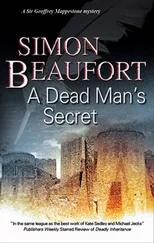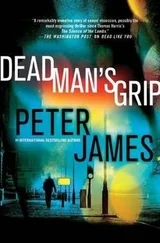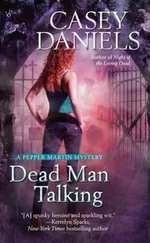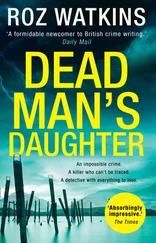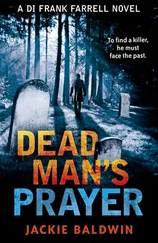I checked the time. I’d been in the house eighteen minutes. The low buzz of adrenaline that had been keeping me pumped was beginning to wear off, and I felt jumpy and tired. What if Turner Blakely had car trouble and didn’t make it to the bachelor party? He could be home any moment. What if some nosy neighbor got curious about my Volkswagen and called the police? They could be surrounding the house right now. Once the thought had entered my mind, I couldn’t get rid of it. Giving in to my paranoia, I crossed to the window and drew one fold of the drapes aside a smidge. Nothing moved in the backyard. Feeling silly, I returned to the file cabinet and opened the bottom drawer.
No sign of a manuscript here, either, but one of the folders was labeled BOOK AGENT, and another bore the name of a publishing house. I didn’t have time to read all the legal documents in either folder, but I copied down the agent’s name and phone number, as well as the name of the woman who’d signed the letters from the publisher; her title was executive editor and vice president. Slipping my one puny page of notes into my pocket, I checked to make sure I had my useless flashlight, and returned to the hall. I glanced toward the door at the end of the hall, the one I figured led to Corinne Blakely’s bedroom. The half-open door beckoned me, an invitation, but my nerves were fried, and I felt uncomfortable about invading the dead woman’s bedroom. Ransacking her office was bad enough; I couldn’t make myself paw through her bedside tables or peer under the bed for a manuscript I was beginning to think must be already with her agent or editor. I turned toward the stairs.
I found myself speeding up as I neared the stairs; I was jogging by the time I reached them and started down. I took them two at a time, holding on to the banister, eager to reach the foyer, the front door, and freedom.
That might be why I didn’t notice the woman just to the left of the bottom stair, holding a fireplace poker in a stance that would have done Mark McGwire proud, looking like she planned to slam me over the fence, until I practically bumped into her.
I let out a stifled scream.
The woman took two steps back and raised the poker higher. “You stay here while I call the police,” she said in a surprisingly deep voice that belied her looks. She was short, plump, and eighty years old if she was a day. Thinning white hair crinkled around her seamed face, and a pair of modern, red-framed bifocals perched on her Roman nose.
“I don’t think so.”
I sprinted toward the front door but didn’t get two steps before the poker cracked against my ankle. She hadn’t been able to put much force into the blow, but it stung like the dickens and made me stumble. I righted myself and had a hand on the door handle when a wheezing sound made me turn. The old woman had sunk onto the lowermost stair and had one hand pressed to her chest as she drew labored breaths.
Oh, damn . I hovered on the threshold, pulled in two directions. On the one hand, my Beetle, escape, and freedom beckoned me. On the other, if the old woman was having a heart attack or a stroke, I couldn’t leave her to die. I could call 911 once I was on the road, my practical side said. She could be dead by then, my more compassionate side pointed out. Aaagh . I took one step onto the veranda, then turned back with a muffled curse and ran to the woman.
Her eyes widened as I approached, but I knelt beside her and said, “I’ll call for an ambulance.” I fumbled for my cell phone.
The woman, a line of pale blue ringing her lips, said, “Pills. Purse. Kitchen.” Her voice got weaker with every word.
I raced to the kitchen and saw a purse that hadn’t been there earlier sitting in the middle of the granite-topped island. It was about the size of a book, with a rigid bottom so it sat upright, dual handles curving upward. Snapping it open, I dug through it, locating the pill bottle without trouble, since the purse held only a thin wallet, keys, a glasses case, and a tin of breath mints. I dashed back to the woman, unscrewing the bottle as I went and tipping some pills into my hand.
Giving me a grateful look, she plucked a tablet from my palm and tucked it under her tongue, closing her eyes.
“Should I call nine-one-one?”
A slight head shake answered me. I hovered near her, shifting from foot to foot, my fingers bouncing on the phone’s keys, until the blue tinge disappeared and her breathing came more easily. “I’m so sorry I scared you,” I said.
“You’re a peculiar kind of thief,” she said, eyes snapping open, voice more robust.
“I’m not a thief!”
The old woman peered over the tops of her glasses. “Of course you’re a thief. You broke into this house.”
“As far as that goes,” I said, rearing back, “you broke in, too.”
“I did not.” She glared at me. “I live here.”
“Do not. Corinne Blakely lived here, and she died.” We eyed each other with mutual suspicion.
“I worked for her for nigh on fifty years. Half a century.” Sorrow weighted her words.
“You must be Mrs. Laughlin!”
“How did you know that? We haven’t met, have we?” She scanned my face in the way people do when they’re afraid they ought to recognize you but can’t quite dredge up a name. An extra anxiety wrinkled her brow: the anxiety of an aging woman afraid she was losing it.
“No. I was here earlier today with Maurice Goldberg and he mentioned you.”
Mrs. Laughlin relaxed a tad and let me help her to her feet. “Maurice is a good man. He was good for Corinne, the only one of her husbands she shouldn’t have divorced.”
“Did you know them all?”
“All except the first one. He passed before I came here to work.”
“You came from England?” The faintest trace of an accent had been nagging at me, but now I placed it.
“Canterbury.”
“I go to Blackpool every year. I love England.”
She allowed herself a tiny smile. “You must be a ballroom dancer.”
I offered her my hand. “Stacy Graysin. Maurice teaches at my studio.”
Mrs. Laughlin shook my hand, her grip firm, although her skin felt as thin as tissue paper. “I could use a cuppa. Why don’t we sit in the kitchen and you can tell me what you’re doing here, if it’s not thieving.”
I trailed her back to the kitchen, where she filled a stainless-steel teapot and put it on the range. I perched on a bar stool drawn up to a breakfast bar. “What are you doing here?” I asked. “I thought Turner said… you didn’t work here anymore.” I opted not to say the F-word-fired.
“That twit fired me this morning,” she said with an affronted sniff. “About ten minutes after he found out dear Corinne had passed. I worked here for more than twice as long as he is old, and he turns me off with no notice.” She didn’t sound too upset. “I was going to quit; he stole that pleasure from me. I did tell him I wouldn’t work for a spoiled, cowardly adolescent like him for twice what Corinne was paying me.”
“I’ll bet he liked that.” I accepted the china cup she handed me and breathed in the fragrance of Earl Grey.
“Not by half,” she said with a reminiscent smile, seating herself beside me. “He hollered and carried on and ordered me out of the house on the spot. That’s why I came back now: I knew he’d be out, and I wanted to collect my things and a few mementos Mrs. Blakely intended me to have.” She nodded toward a couple of suitcases and boxes near a door that I guessed might lead to the housekeeper’s quarters.
“Do you have someplace to live?” I felt a tug of concern for the old woman whose knuckles were swollen with arthritis in the kitchen’s clear light.
Читать дальше




